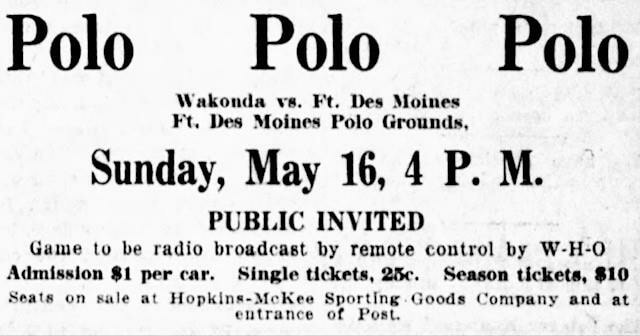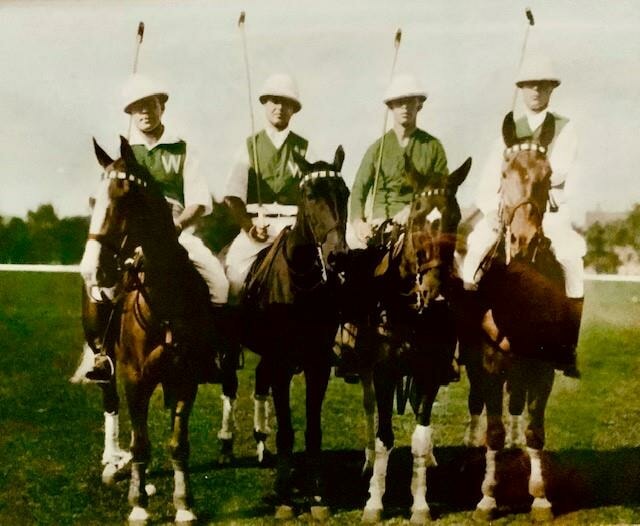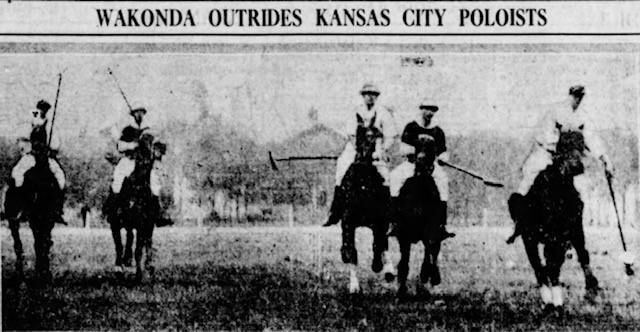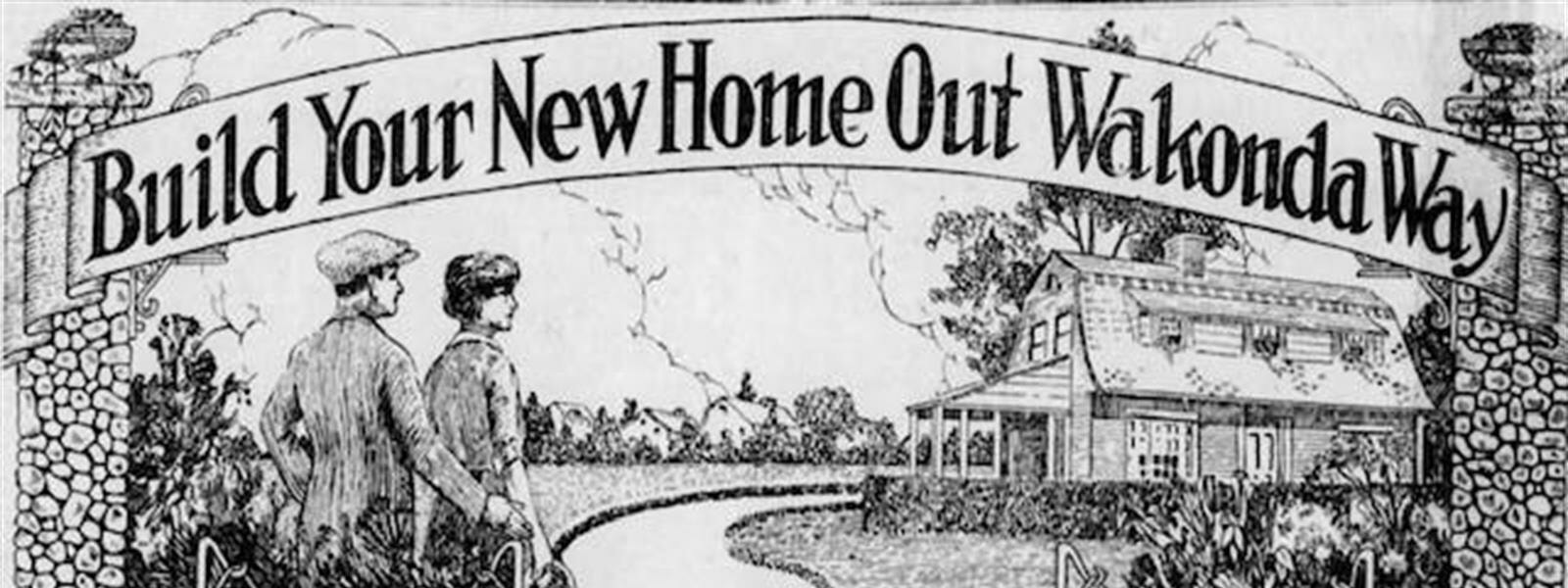The Sport Kings at Wakonda
Written by Guy R. Cook
Polo, said to be perhaps the “oldest recorded team sport in history”, has been part of our club history from its founding, with the Wakonda Club fielding a “crack” polo team for nearly two decades. Near the turn of the 20th century, interest in polo in the U.S. was increasing, with the “excitement of the sport being contagious.” Fascination with the sport also grew with, T. R. “Teddy” Roosevelt, the 26th president, taking up the sport, riding his pony “Pickle.” He once declared “Polo is a good game, infinitely better for vigorous men than tennis or golf or anything of that kind. There is all the fun of football with horses thrown in.”

The U.S. Army 14th Calvary regiment station at Fort Des Moines, first introduced polo to Des Moines; the polo grounds were frequently filled with solders on horseback simulating Rough Rider charges (with future president Ronald Reagan later learning to ride with the cavalry in the 1930’s at Fort Des Moines).
The founders of the Wakonda polo team reportedly found golf “too tame” and took up polo with the initial purchase of five “trained polo ponies.” The first matches were played at the Fort Des Moines Polo field, “until the stables at the new Wakonda Club are completed and matches will be played there.”
In the summer of 1922 the Wakonda team competed in the “first annual polo” meet at Ft. Snelling in St. Paul MN, and became a member of the U.S. Polo Association in 1923.

Pictured: Gail Fitch, Fed W. Hubbell, Lucius Fitch, James W. Hubbell
The team members often sported green vests with a large white W on the left chest. Some of the members of the team were, James “Jimmy” W. Hubbell, his brother Frederick W. Hubbell, (grandsons of F.M. Hubbell), Harry Holt (grand-son of the founder of Caterpillar Tractor), the Fitch brothers, Gail and Lucius, sons of F.W. Fitch (founder of a national soap and shampoo business that later evolved into the Bristol-Meyers company), Gus Meadows, R. B. Parrott, O.P. Thompson, George Olmstead (West Point graduate and later Washington, D.C. financial tycoon) and scion of Russia nobility, Llia Tolstoy, (grandson of famed Russian author Leo Tolstoy).

Bert M’Grane of the Des Moines Tribune wrote “if the vigorous game of polo had never been introduced into the middle-west, perhaps James W. Hubbell would still be devoting his spare time to perfecting the fundamentally sound golf game that made him one of the game’s outstanding players” and the “only Iowan to have won the national collegiate golf championship.” The “absence of his name from most of the golf records since can be attributed to the fact he prefers his place in the saddle as a member of the Wakonda Polo team to whatever links laurels might come his way.”
The Wakonda polo team traveled to various locations in the midwest for matches, including St.Louis, Mo.; Leavenworth, Kan.; St. Paul, Minn.; Omaha, Neb.; and Kansas City, Mo.
In June of 1928, the Wakonda Club polo team defeated the polo team of famous humorist, Will Rogers and the Cowboys 12-9, at the Kansas City Country Club, before a crowd of several thousand that arrived in “private cars with chauffeurs and footman, in taxis, on busses, and on foot just to see the renowned humorist perform in an athletic way - and he did.”
The Wakonda Polo team often played the U.S. Army 14th Calvary on Sunday afternoons at the Ft. Des Moines Polo grounds for the “Wakonda Cup.”
.400x444.jpg) | .500x360.jpg) | .400x406.jpg) |
The late Des Moines Register columnist, Walt Shotwell, fondly recalled the “heydays of Des Moines polo” with the Sunday matches being an “afternoon of splendor, ”saying, “my folks dressed me up in my Sunday best. All of us, including grandma, piled into the white Packard touring car and dad drove us as if we were going to a coronation. The Packard joined Cadillacs, Franklins, Lincolns, and Pierce Arrows lining the polo grounds like gold plated bleachers. Ladies in high-topped shoes and flowery bonnets and gentlemen in jackets broke out baskets of sandwiches, cheese, and fresh fruit. Men chatted about chunkers, bamboo mallets, and assessed the quality of the ponies. A few corks were popped, but I was too young to know what was in the bottles.”
With the commencement of WWII, Des Moines polo waned and eventually evaporated. It was brought back to life in Des Moines, however, by outdoorsman and former Wakonda member, Bart Hicklin, and Monte Antisdel in 1982, who created the Des Moines Polo Club. Hicklin built the first polo field north of Des Moines on Orlabour Road. The club moved to several other sites and today is located just south of Des Moines, near Cumming.

